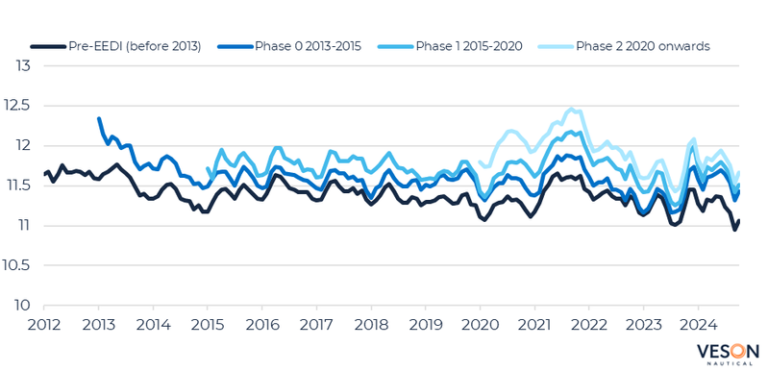The Global Bulker Fleet Faces Slowdown Due to Aging Vessels and Regulations
The global bulker fleet is experiencing a significant slowdown, driven by a combination of factors that are reshaping the market dynamics. According to a recent report by Veson Nautical, the decline in average speeds is not only a result of aging vessels but also setting the stage for a two-tier market.
The report titled ‘Why is the bulker fleet slowing down? The impact of an aging fleet in the era of efficiency’ highlights that older vessels, stricter emissions regulations, and evolving market dynamics are contributing to the lower average speeds seen in the industry.
Data presented in the report indicates that older vessels, especially those built before the Energy Efficiency Design Index (EEDI) criteria were implemented in 2013, are experiencing a notable decrease in speeds compared to newer vessels. This disparity is identified as a key factor in the overall slowdown of the global bulker fleet.
Oliver Kirkham, Senior Valuation Analyst at Veson Nautical, notes, “A surplus of older, inefficient vessels in the fleet, now subject to efficiency regulations for sailing at higher speeds, is driving the decline in average speeds. This shift signifies a deeper transformation in the bulker market, where modern, compliant vessels are poised to command a premium while older ships struggle to keep up.”
The report also points out that the rapid expansion of the bulker fleet in the mid-2000s, driven by China’s economic growth, has led to a significant portion of the fleet becoming increasingly inefficient. These vessels are finding it challenging to meet contemporary efficiency standards, creating a growing divide between newer, more efficient ships and older vessels nearing the end of their operational lifespan.
As the global bulker fleet navigates through these changes, it is evident that a mix of regulatory compliance, technological advancements, and market demands will shape the future landscape of the industry.

